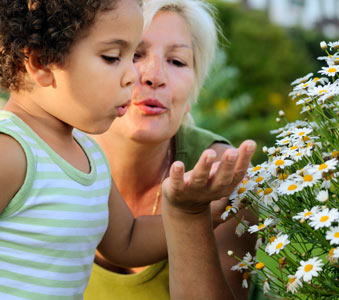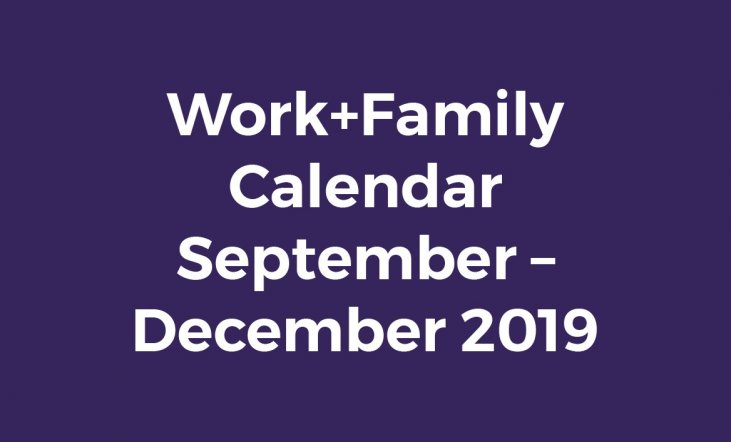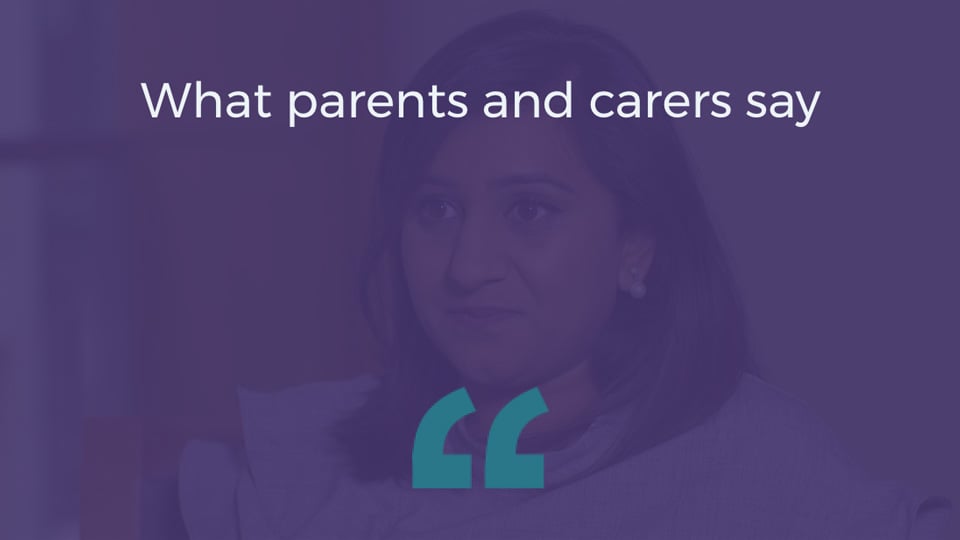Newsletter Sign Up
Regular work+family updates for
HR and diversity professionals.
My Family Care asks Stephen: We were all children once, and as we grow up we mature and gain responsibility. Some of us will have families of our own and others choose to focus on careers, but at some point in time the relationships we have grown familiar with change. How do you handle transition gracefully? Where do you draw the line, and what help can you seek if you find yourself struggling?
We're constantly reminded of the cycle of life
My favourite card on display in my office has a picture of a mother and her child with the saying: "Be nice to your kids - they'll choose your nursing home." It always brings a smile to my face. It's also a great reminder of the cycle of life.
When we are young, we are very dependent on our parents. And when we are old, we may well be very dependent on our children. In between, the responsibility for caring very much rests with us, whether it's childcare, eldercare, or for a disabled adult.
But as always, life is not quite that simple. As we age, with considerable experience under our belt, it's often hard to accept that we can't do all that we want to; even harder is losing your independence and relying on support and care.
Many of us are living longer
As our population ages, many of us are living much longer. That means great opportunities in our 60s, 70s and 80s that previous generations didn't have - from carrying on working to travelling and contributing to our local communities.
But it can also mean living longer into our 80s, 90s and beyond with ill-health, disability or a long-term condition. All of them require greater support from family members, friends, or care services - or a combination of all these.
Relying on family and friends inevitably changes the relationship between you and them. You need their help to get out and about, or do other things that most people take for granted. It may also mean needing help with the most basic of daily tasks from cooking and eating to toileting and washing.
How do you move from nappy changing your children, to your children helping you with incontinence pads, while maintaining your dignity and respect?
Make a plan in advance
Talking about it and planning in advance are key. Think through your preferred options and talk them through with your children before you are overtaken by events.
Sometimes it's a gradual decline in abilities that requires the need for support; often it's a major life trauma such as a stroke, or a fall, or heart attack. These events are much harder to fully recover from later in life and can severely dent your confidence, as well as your abilities. They require urgent responses which we may not have planned for.
We all like to think we are immortal and will be at the top of our powers throughout life. But the reality is different. We have a responsibility to think and plan ahead and act.
Leaving it too late to downsize your home for example can make moving home much harder. Home is central to the quality of life as we age. Older people spend more of their time in their home and we need to make sure that home is suitable. It also needs to be near a network of support, whether it's friends, or family, or neighbours. What seems like a romantic remote location when you are in your 50s and 60s may not be appropriate twenty to thirty years later. But your children may not like you selling the 'family' home. Again, it's best to talk it through while you can.
Talk about the difficult subjects
The other thing to plan for is losing your mental capacity. With growing numbers of people living longer with dementia, it's important to have made plans to hand over responsibility for your affairs to a relative through your power of attorney. Looking after someone in this situation is hard enough without having to sort out all sorts of legal and financial issues as well.
So, preparing a 'living will' setting out how you would like to be cared for as well as a will to dispose of your estate is a good move. However stubborn we may be in older age and however much we may refuse to face reality, if we don't, we are only making things harder for our loved ones. If we want to sustain lifelong relationships, then we must talk and plan.
As that card should have said: "Be nice to yourself - talk to your kids so you get the care you want".
Stephen Burke, Director of United for All Ages and Good Care Guide












